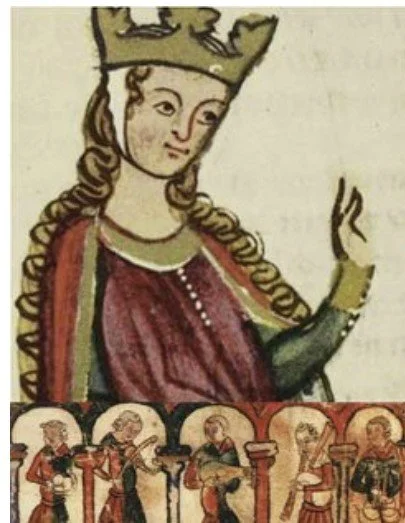Eleanor of Aquitaine: Queen, Duchess, and Mother of Rebels
The Road to the Great Rebellion, Part 3
Eleanor of Aquitaine
Few women in medieval Europe wielded power like Eleanor of Aquitaine—and fewer still paid such a price for it. Queen of France, then Queen of England, Duchess of Aquitaine in her own right, she shaped the politics of the twelfth century as surely as any king.
By the 1170s, though, Eleanor was not simply a queen. She was the mother of princes — and soon, of rebels.
From Poitiers to Power
Born around 1122, Eleanor inherited the vast duchy of Aquitaine when her father died in 1137. Within weeks she was married to Louis VII of France and crowned queen. But Louis was a monkish man; Eleanor was a duchess raised amid troubadours and tournaments. Their union was doomed.
After fifteen childless years and one disastrous Crusade, the marriage was annulled. Only weeks later, Eleanor married a fiery young count ten years her junior—Henry Plantagenet, Duke of Normandy and soon to be Henry II of England.
The Queen Who Would Not Be Quiet
Eleanor was not content to be a silent consort. She governed her lands in Aquitaine, travelled on campaign, and bore Henry eight children. Chroniclers described her as beautiful, sharp-witted, and politically dangerous—an intoxicating blend of charm and calculation.
But Henry was no easy husband. Restless and autocratic, he sought to dominate both his barons and his family. As his empire expanded, their marriage fractured. By the 1170s, Henry’s infidelities and Eleanor’s exclusion from real power had curdled affection into resentment.
The Mother of Rebels
When their sons grew to manhood, Eleanor encouraged them to demand their inheritance. Henry the Young King, Richard, and Geoffrey wanted lands to rule; Henry II refused. In 1173, when the princes fled to France, Eleanor supported them. Chroniclers later claimed she disguised herself as a man to join them—an image that has haunted legend ever since.
Her rebellion failed. Henry II’s forces captured her later that year while she travelled through Poitou. For the next sixteen years she was kept under guard, a queen turned prisoner. Yet even captivity could not erase her influence: her sons would continue to fight in her name.
Eleanor’s Legacy
Eleanor outlived Henry II and two of her sons, dying at Fontevraud Abbey in 1204. By then she had shaped dynasties from England to Castile, and her descendants sat on nearly every major throne of Western Europe.
She remains a paradox: both a dutiful mother and a dangerous rebel; both the maker and breaker of kings.
Why This Matters for Lady of Lincoln
In Lady of Lincoln, Eleanor’s long shadow lies over Nicola de la Haye’s world. The rebellion Eleanor helped ignite would ripple through every shire, including Lincolnshire, testing loyalties and forcing women like Nicola to choose between obedience and survival.
Next month in The Road to the Great Rebellion series: The Shadow of Becket: How a Murder Shook the Kingdom
